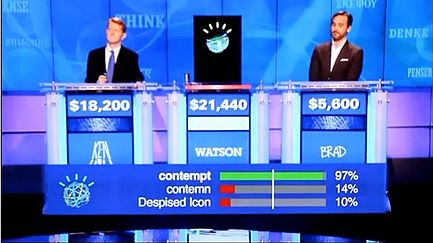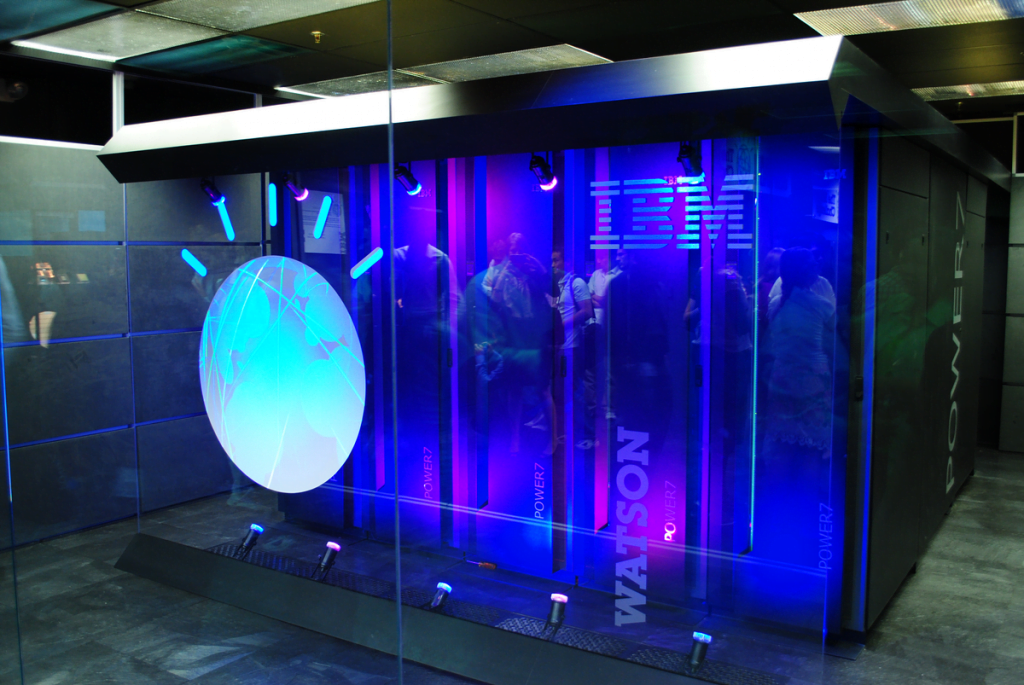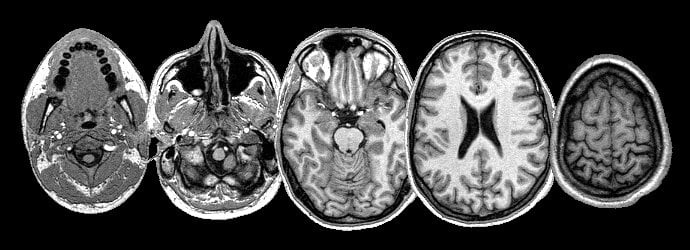Could IBM’s artificially intelligent super computer ‘Watson’ Treat Cancer? Its programmers at IBM’s research lab in Haifa, Israel, say ‘Yes’.
Under development at IBM since 2005, the idea of the super computer Watson was conceived initially as a computer that could compete on the TV contest Jeopardy! – yes, that was actually the project. Such challenges were not foreign to IMB, which designed Deep Blue, a computer that beat reigning chess champion Garry Kasparov in 1997. However, Jeopardy! presented an number of problems that IBM had not solved before. Not only would such a computer have to be able to respond to natural speech, but it had to do so in a matter of seconds. Watson’s predecessor, a system named Piquant, could answer correctly to about 35 percent of the questions it was asked, and often required several minutes to respond.

Watson’s ability to gauge his level of confidence for each answer was especially important for Jeopardy! because contestants are penalized when they answer incorrectly. Courtesy of ClockReady
Led by researcher David Ferrucci, the Watson team developed Deep QA, the software that enables Watson to understand questions in natural language and search for relevant answers among the millions of sources uploaded onto its hard drive. Specifically for Jeopardy!, dictionaries, taxonomies, scholarly journals, and the full text of Wikipedia were uploaded to Watson. Once he gathers the relevant information (yes, IBM refers to Watson as a ‘he’), his DeepQA software assesses the quality of the sources it searches, and can deliver the hypothesis with the highest degree of confidence, and explain his reasoning.
Since winning the million dollar Jeopardy! championship, Watson has made other celebrity appearances as an inspirational chef for Bon Appetit magazine and as Bob Dylan’s companion in IBM’s latest advert.
A New Wave of Computing?
However more than a PR personality, Watson is spurring a new wave of computing. As IBM CEO Ginni Rometty explained in an interview with Charlie Rose, “the first generation of computers, they counted things. The second generation, you had to program them. Everything you know today is programmed. What Watson represents, we use the word cognitive, it’s a system that learns.” In other words, digitalized information from any field can be uploaded onto Watson and he can understand it, independently.
Some skeptics, including Prof John Searle of UC Berkeley, have claimed that Watson does not in fact think like a human, while ‘singularists’ like Ray Kurzweil, as well as the father of modern computer science, Alan Turing, have forecasted the day when machines surpass human intelligence. However, the team at IBM maintains that Watson will not replace human decision making, but rather assist it. And to prove their point, they are applying Watson’s brain to healthcare, and more specifically, to treating cancer.
Teaching A Computer To See
Two hours north of Tel Aviv, researchers in IBM’s lab in Haifa have been working on Watson’s Health Cloud, a platform of health services powered by Watson’s computing power. In trials at Memorial Sloan Kettering Hospital in New York, Watson is already analyzing medical records of oncology patients and comparing them against cancer case histories, recent medical research, and ongoing training from physicians to provide evidence-based treatment options.
Now a team led by Technion alumna Flora Gilboa-Solomon, along with partner labs in the US and Australia, is developing Watson’s capacity to read and understand medical imaging. Using computer vision technology, as well as the machine learning algorithms already built into Watson, the team is building what IBM calls their Medical Sieve, a system which will be able to read mammograms, ultrasounds x-rays, and MRI images – and pick out anomalies.
SEE ALSO: How Elephants’ Genes Are Fighting Cancer In Humans
Sign up for our free weekly newsletter
SubscribeRadiologists, unlike clinicians, analyze hundreds of patients’ images a day, without ever seeing the individuals themselves. Yet their heavy workload has led to an alarmingly high error rate. A 1997 study reported a 23 percent error rate when experienced radiologists analyzed a collection of normal and abnormal x-rays with which no clinical information was supplied, and 20 percent error rate when clinical details were available.
A more recent study suggested radiologists’ ability to focus and detect fractures diminished at the end of the work-day. Meanwhile, the Royal College of Radiologists (RCR) in the UK reported that the National Health System’s (NHS) “chronic shortage” of specialists who can interpret CT and MRI scans has led to delays “in diagnosing cancer and other serious illnesses.” The RCR President, Dr Giles Maskell, commented in the report that “although most of these X-rays and scans will not show serious abnormalities, some will show findings which would allow an expert to diagnose cancer or another serious condition at a stage at which it could be cured.”
“This is where Medical Sieve steps in and contributes considerably to reducing diagnosis time and clinician fatigue,” says Gilboa-Solomon. “The need for Big Data analytics to help sift through all this medical data is clear.”
Specifically in the case of melanoma, IBM estimates that manual detection methods are only 75 to 84 percent accurate. Watson, by contrast, is capable of spotting the skin cancer with an accuracy rate closer to 95 percent, according to the team’s latest research.
“With the number of examinations and tests increasing dramatically from year to year and the number of MDs specializing in radiology going down, we need to help radiologists work with greater volumes while maintaining diagnostic quality and accuracy,” said Dr. Sharbell Hashoul, a radiologist and a member of the research team developing Medical Sieve.
SEE ALSO: Cure For Terminal Cancer’ Discovered With Breakthrough Immunotherapy
Though the Medical Sieve will not be commercially available for another few years, Watson has made their API available to developers, enabling them to build apps and services using Watson’s computing power. So far, nearly 800 organizations have signed up with IBM, including the Israeli startup Talkitt, which is designing technology that will help people with speech disabilities to communicate. In addition, IBM has set aside $100 million for a venture fund that will invest in companies developing cognitive applications.
Given all research and development put into Watson, a cognitive computer could be as ubiquitous as a now, old-fashioned PC.
Photos: Wikipedia Commons/ Clockready/ DASHBot
Related posts

Editors’ & Readers’ Choice: 10 Favorite NoCamels Articles

Forward Facing: What Does The Future Hold For Israeli High-Tech?

Impact Innovation: Israeli Startups That Could Shape Our Future





Facebook comments